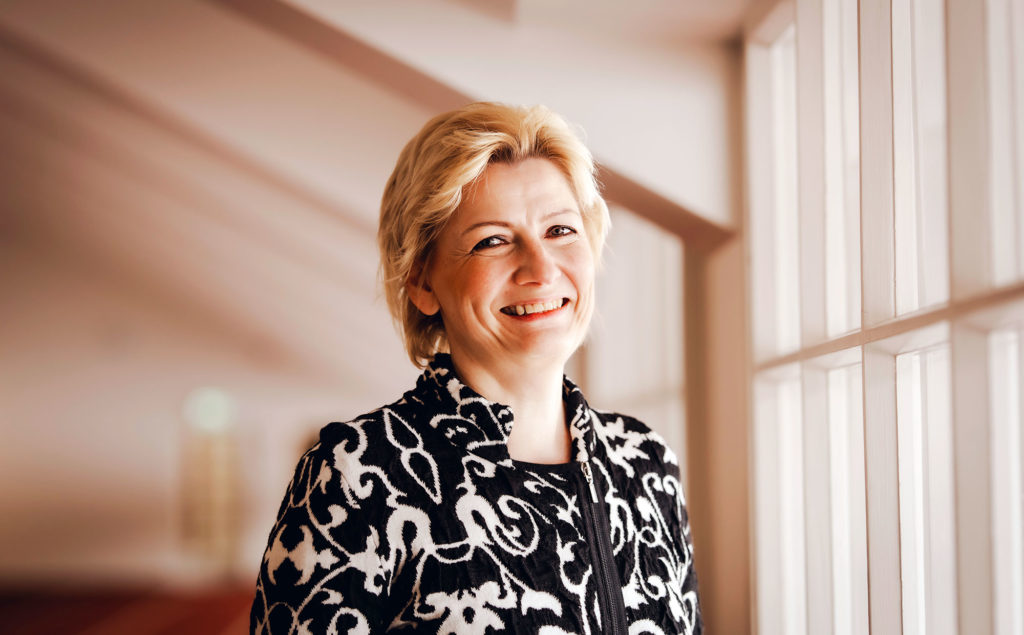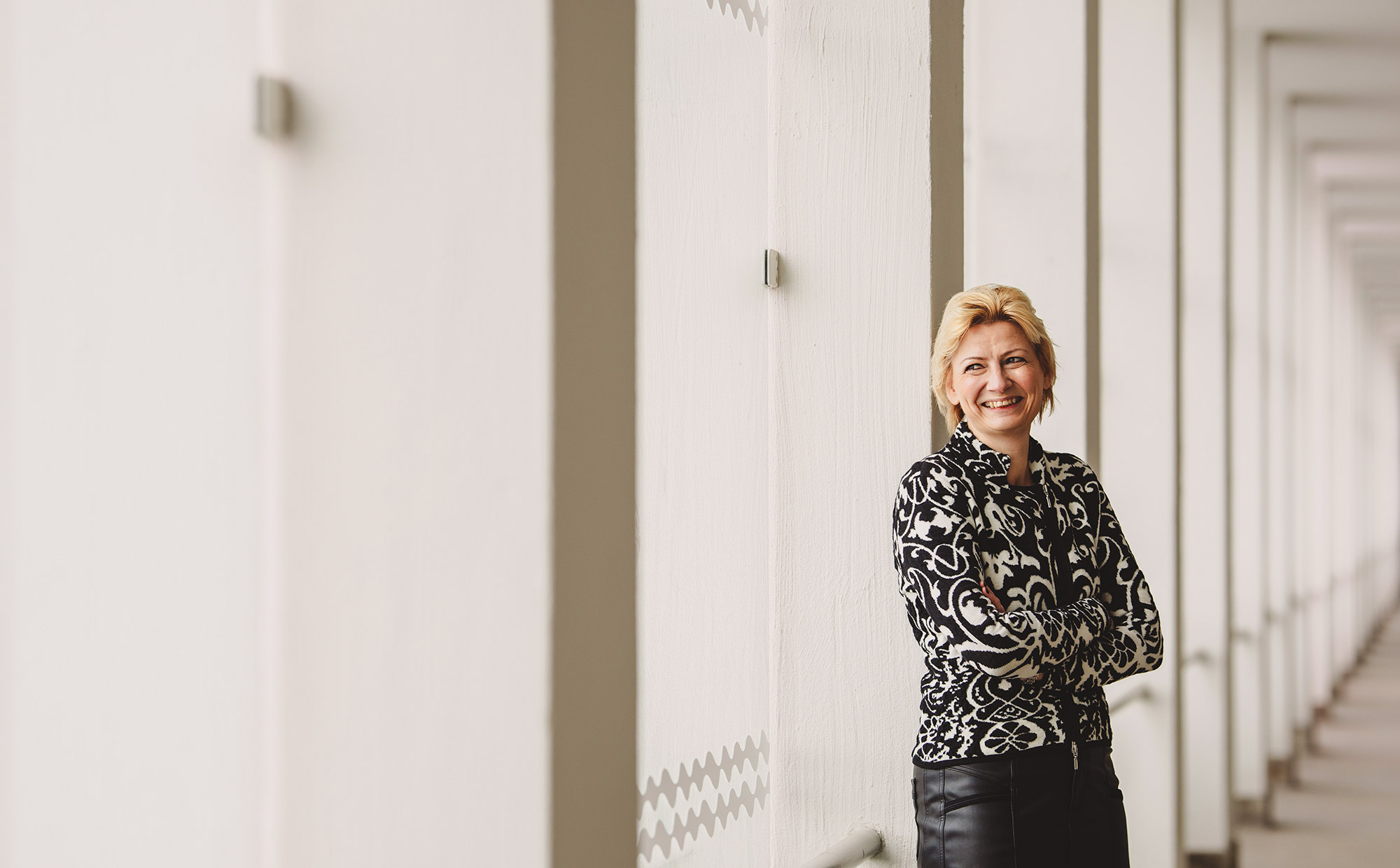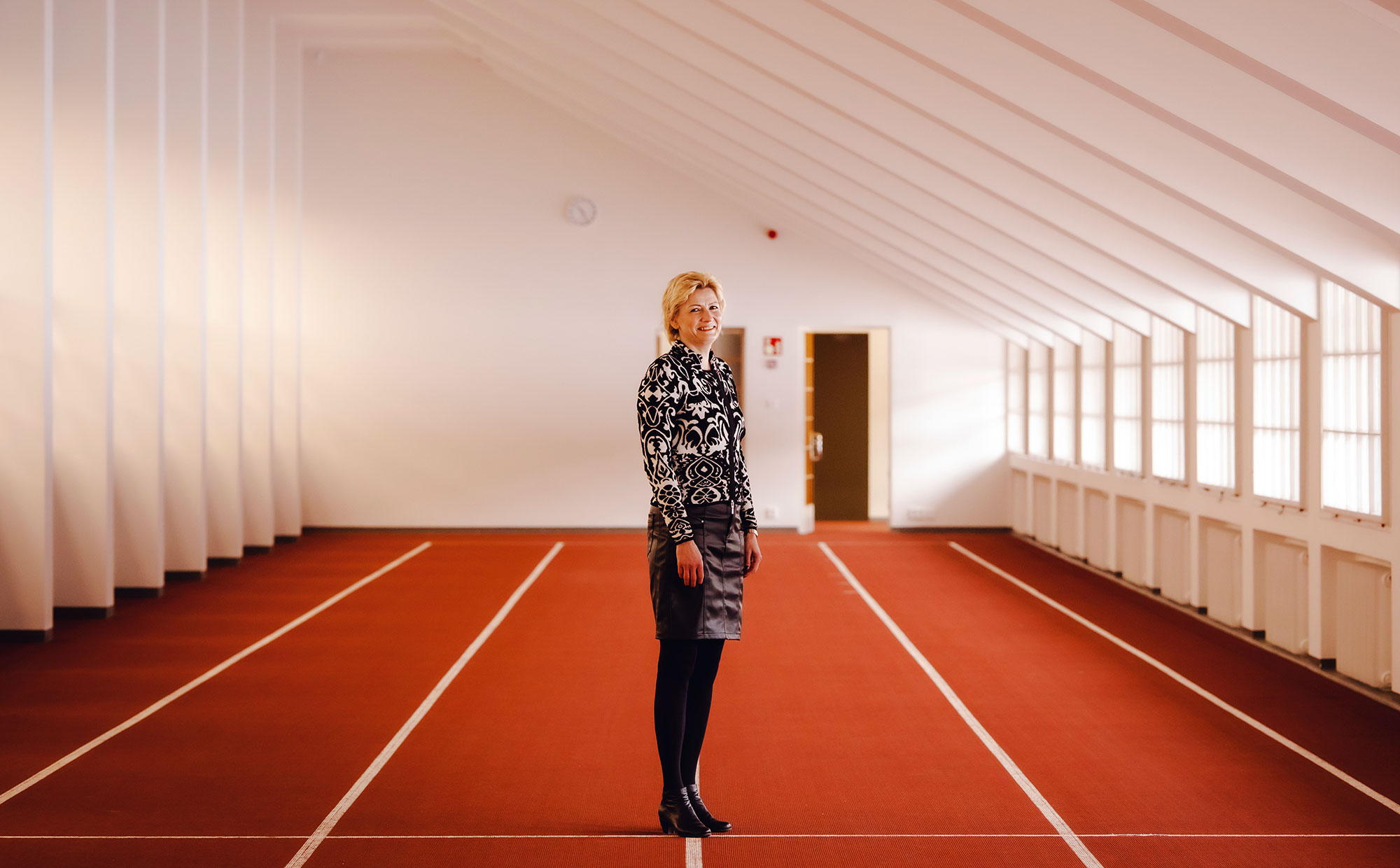Jutta Laine-Ylijoki became CEO of KIVO in the midst of change – “Traditional waste management must always work”

“Many things are based on chemistry,” says Jutta Laine-Ylijoki, CEO of Suomen Kiertovoima Ry, or KIVO.
“Let’s take pizza dough; I just explained how it works to my son. Dough is the most interesting thing in the world. Oil and water don’t mix, but if you add flour they combine to form gluten. You then add salt, which dissolves. These are everyday examples of chemistry and how single ingredients form a mixture.”
Laine-Ylijoki, MSc, became CEO of KIVO, the association that represents public waste management and 33 municipal waste management companies in Finland, in June 2022. Before taking her current post, she worked at the VTT Technical Research Centre of Finland as a Senior Scientist in waste management and environmentally friendly processes for more than two decades and at FCG consulting group as a Leading Adviser in circular economy and sustainable development. During her career, which spans almost 30 years, she also studied to become a chemistry teacher.
“I’ve always had a little teacher in me,” she says, laughing.
A CEO in the midst of change
For Laine-Ylijoki, the journey from chemistry to waste management has been a natural one. It’s difficult to think of an activity or process that does not generate waste.
Laine-Ylijoki joined KIVO in the wake of the revised Waste Act, which introduced a number of changes. One of the most significant of these was the separate collection of packaging waste from residential properties, due to be implemented from 1 July 2023.
The collection of cardboard, glass, metal and plastic packaging will cover all properties with at least five households. Thanks to cooperation between municipalities, waste management companies and packaging producers, more households in Finland will have access to collection containers for packaging waste in their buildings. The property-specific collection will cover just under three million people.
According to Jutta Laine-Ylijoki, the cooperation between producers and municipalities in collecting packaging materials from residential properties has been seamless.
“It’s already done in many municipalities. The cooperation with producer organisations to manage the change has been very smooth. I’m pleased to see how well the parties have communicated and worked together,” she says.
Of course there are challenges too. For consumers, property-specific collection means more waste collection containers to familiarise themselves with. There will also be issues concerning space and fire safety, for example.
“The goal is to handle waste management operations as efficiently as possible. It all needs to be a one-stop solution for residents.”
Laine-Ylijoki, who took on her new role in the midst of changes brought in by the Waste Act, says that she is very happy with the results that KIVO has achieved.
“We’ve already done good work, but we want to further clarify the role of municipal waste management in circular economy. We also want to take our cooperation to the next level and be seen as a partner – while remembering our basic mission. Traditional waste management must always work everywhere.”
Recycling targets as part of a sustainable society
Waste management operations are closely linked to circular economy and the fight against climate change. The recycling targets set by the EU for its Member States have an impact on the entire waste sector in Finland.
However, Laine-Ylijoki thinks that too much focus has been placed on the recycling targets.
“I think that the EU admits that the majority of Member States won’t meet their targets. And even if they do, will things be done any more sustainably? In what ways will they be more sustainable?”
Laine-Ylijoki points out that the circular economy package is far more important than a single target. There should also be other targets beyond recycling.
In Laine-Ylijoki’s opinion, efforts to fight climate change are too isolated. It would send an important message if various parties could work together on circular economy and climate actions.
“We need to move from words to deeds and from ambitious targets to action plans and roadmaps. Just because a goal has been set doesn’t mean it’s been achieved,” she says.

